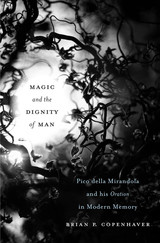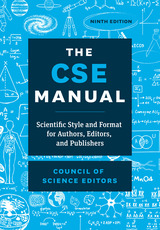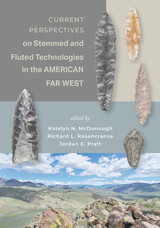
“This book is nothing less than the definitive study of a text long considered central to understanding the Renaissance and its place in Western culture.”
—James Hankins, Harvard University
Pico della Mirandola died in 1494 at the age of thirty-one. During his brief and extraordinary life, he invented Christian Kabbalah in a book that was banned by the Catholic Church after he offered to debate his ideas on religion and philosophy with anyone who challenged him. Today he is best known for a short speech, the Oration on the Dignity of Man, written in 1486 but never delivered. Sometimes called a “Manifesto of the Renaissance,” this text has been regarded as the foundation of humanism and a triumph of secular rationality over medieval mysticism.
Brian Copenhaver upends our understanding of Pico’s masterwork by re-examining this key document of modernity. An eminent historian of philosophy, Copenhaver shows that the Oration is not about human dignity. In fact, Pico never wrote an Oration on the Dignity of Man and never heard of that title. Instead he promoted ascetic mysticism, insisting that Christians need help from Jews to find the path to heaven—a journey whose final stages are magic and Kabbalah. Through a rigorous philological reading of this much-studied text, Copenhaver transforms the history of the idea of dignity and reveals how Pico came to be misunderstood over the course of five centuries. Magic and the Dignity of Man is a seismic shift in the study of one of the most remarkable thinkers of the Renaissance.

Although “form” is one of the most commonly used terms in music interpretation, it remains one of the most ambiguous. This penetrating study explores evolving ideas of musical form from a historical perspective and sheds new light on current conceptualizations of music.
Mark Evan Bonds examines the image—dominant among eighteenth-century composers and analysts—of music as a language, a kind of wordless discourse, which could move audiences. In the Baroque and Classical periods an instrumental composition was viewed as analogous to an oration, its form the intelligible elaboration of a central thematic idea. The predominant emphasis, therefore, was on the perspective of the listener. This rhetorical metaphor is shown giving way in the nineteenth century to the idea of a musical work as an organic entity, an image that emphasizes the autonomy of the work. The listener, in effect, becomes merely an interested third party.
In his account of these changing perspectives, Bonds draws on the writing of a broad range of eighteenth- and nineteenth-century theorists. His analyses focus on specific sonata form movements by Haydn, Mozart, and Beethoven and are informed by the theoretical premises that characterize the composers’ own times. In a final synthesis, the eighteenth-century rhetorical model—with its focus on the structural function of musical ideas and the role of the listener—emerges as a forerunner of today’s listener-oriented and plot theories about musical form.
In Wordless Rhetoric, Bonds makes fruitful use of literary theory to develop his innovative evaluation of musical form. This book will be invaluable to anyone who studies music or seeks to understand music analysis.
READERS
Browse our collection.
PUBLISHERS
See BiblioVault's publisher services.
STUDENT SERVICES
Files for college accessibility offices.
UChicago Accessibility Resources
home | accessibility | search | about | contact us
BiblioVault ® 2001 - 2024
The University of Chicago Press









